Daily Archives: February 10, 2021
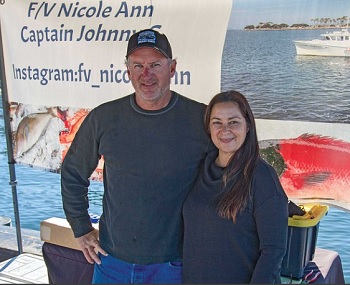
Spiny lobster comes back to San Diego
The rumored price prior to the season opening was $8 per pound, down from the 2019 average of about $20 and 2015’s high near $30. California Department of Fish and Wildlife data showed that spiny lobster was the most profitable local catch at $3.8 million in 2017. In 2018, it brought in $3 million, beating out bigeye tuna. When the pandemic started in China in late 2019, it coincided with the height of legal spiny lobster season in California. Sales in 2019 dropped to $1.8 million. Among San Diego’s top-grossing seafoods, spiny lobster saw the biggest decline. Said Halmay, “They [local fishermen] got together and decided, ‘We can’t make a living off that. Let’s do something about it.’” >click to read< 16:54
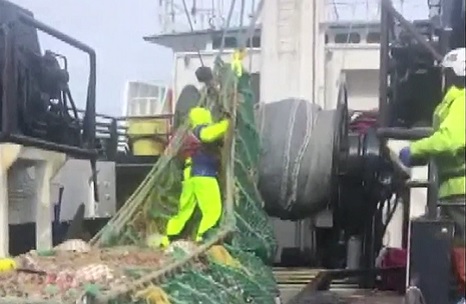
Video Interview: Life for a Mainer fishing in the Bering Sea
Taylor Strout is the son of a fisherman; fishing simply runs in his blood. He is on a boat that fishes out of Dutch Harbor, Alaska,,, Taylor is a mate aboard the Fishing Vessel Northern Defender which, when we talked, was tied up at the dock in Dutch Harbor. The Aleutian Islands split the Pacific Ocean and the Bering Sea, and they fish the Bering Sea. As the crow flies, he is more than 4000 miles away from home. “It’s kind of a different level of 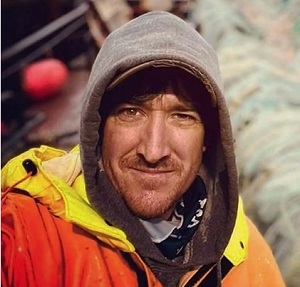 fishing out here.,, “You’re basically towing a football field behind you. You’re taking everything up to a bigger scale when you’re on some of these boats. Bigger weather, there’s bigger seas, sometimes we fish in 15 foot waves to 25 foot waves.” >click to read< 14:44
fishing out here.,, “You’re basically towing a football field behind you. You’re taking everything up to a bigger scale when you’re on some of these boats. Bigger weather, there’s bigger seas, sometimes we fish in 15 foot waves to 25 foot waves.” >click to read< 14:44
Athearn Marine Agency Boat of the Week: 39′ BHM Tuna, 850HP Cat, Phasor Generator
To review specifications, information, and 15 photos, >click here<, To see all the boats in this series >click here<11:01
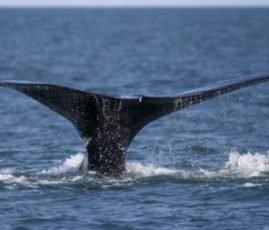
Maine delegation requests comment period extension for BiOp with profound impact on Maine lobstermen
The BiOp is an assessment of a federal agency’s impact on an endangered species. In this case, the Biological Opinion assesses the effectiveness of regulations that the National Oceanic and Atmospheric Administration has imposed on the Maine lobster fishery to protect the North Atlantic Right Whale. Maine lobstermen have already taken significant steps to protect the right whale, despite there being no direct evidence that a single right whale serious injury or mortality has been attributable to the Gulf of Maine or Georges Bank lobster fishery since 2004. >click to read< 09:29
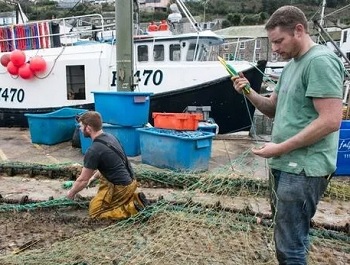
Cornish fishermen forced to re-name catch after Brexit to appeal to British customers
Cornish fishermen have drawn up a detailed plan to sell more of their catch to UK customers as post-Brexit sales to the EU nose dive, and want to rebrand the names of some species to make them more appealing. Megrim and spider crab – two of the biggest catches for boats in the county – are set to be given the more appetising names of Cornish sole and Cornish King crab. Until the UK’s Brexit transition period expired on December 31, about 95 percent of megrim and 85 percent of spider crabs landed by Cornish trawlers was exported to the EU. >click to read< 08:46
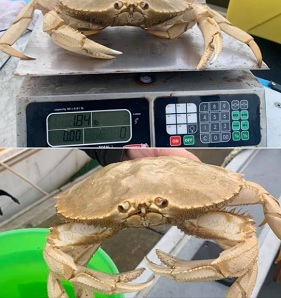
One in a Million? Rare Albino Crab Finds a Home at Humboldt State University Marine Lab
An albino Dungeness crab caught in the Bay Area was brought up to local outfit Comet Fisheries, which help revive the unusual crustacean by placing it in an aeriated tank before HSU’s Marine Lab came to take it to a new home. Based on pictures on a Facebook post by Comet Fisheries, based over at Woodley Island, a crab expert says looks like the real thing. (ODFW), described them as rare, according to an announcement from the Oregon Coast Aquarium when it had one on exhibit, possibly as rare as one in a million. >click to read< 07:35






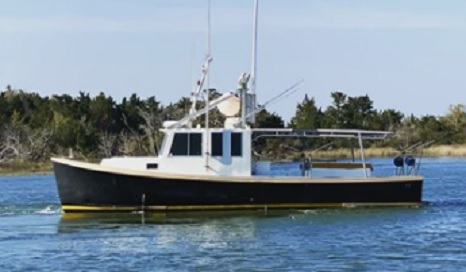



























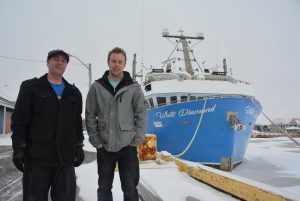


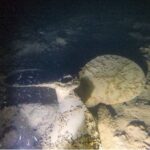
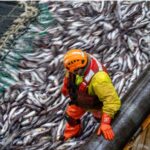
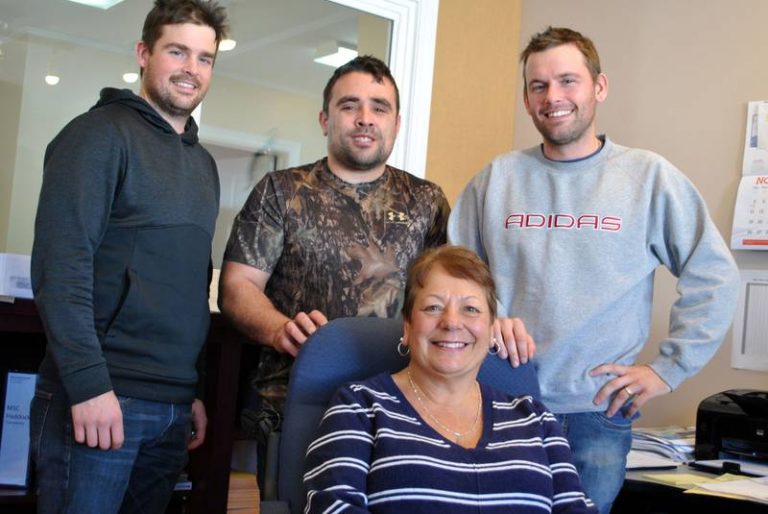
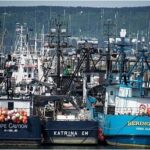
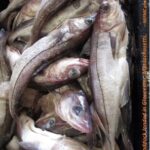

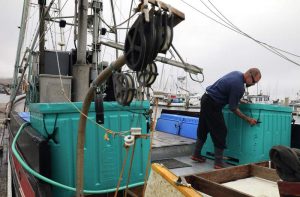
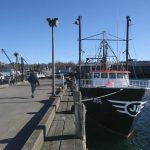
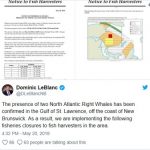



Baker’s embattled climate undersecretary targets fishing industry for Euro wind farmers!
David Ismay is again being called out for his questionable comments — this time against fishermen. The Massachusetts Fiscal Alliance, that broke the first video on the $130,000-a-year official’s rhetoric, says he also told climate activists that in order to obtain enough (offshore) wind power, “something has to give” in regard to the fishing industry. “We need offshore wind, and yes there is fishing out in the ocean too, but you know, there’s, we can’t have no offshore wind, no transmission, no solar, and have clean energy. Right. Something has to give,” Ismay is quoted telling Vermont climate advocates. He goes on to discuss transmission lines that will be placed in the ocean. >click to read< 13:00
Share this post